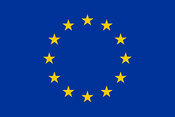COHESIFY
The impact of cohesion policy on EU identification
A major new study to understand whether and how EU Cohesion policy influences the European identity of citizens across the EU (called COHESIFY) was launched on 3-4 March 2016. Led by Professor John Bachtler and Dr Carlos Mendez of the European Policies Research Centre (EPRC), and involving colleagues from EPRC and the wider School of Government & Public Policy at the University of Strathclyde, the €2.4 million study is funded by the Horizon 2020 programme of research excellence from the European Commission. Against stiff competition from 28 other consortia across Europe, the winning EPRC-led consortium comprises 8 universities and 2 SMEs from 10 EU Member States with complementary disciplinary backgrounds and applied and creative expertise in communication, branding and citizen engagement.
COHESIFY will focus on four inter-related issues:
- how European identity and perceptions of the EU and Cohesion policy vary at national, regional and local levels;
- the impact of Cohesion policy on citizens’ perceptions of the policy and identification with the EU;
- whether and how Cohesion policy communication strategies affect perception and identification; and
- what is needed to make Cohesion policy more effective in terms of people’s perceptions of the policy and the EU more generally.
The study will employ an innovative mixed-methods design including an original and representative survey of citizens in a sample of EU regions, quantitative and qualitative analysis of EU-wide data and of programme implementation and communication strategies in a sample of regions, framing and sentiment analysis of online and offline media and focus groups with citizens.
The structure of COHESIFY is designed around six work packages. Beyond project management (WP1), the research will begin with a contextual mapping of EU territorial challenges, attitudes and identities (WP2). The implementation and communication of EU Cohesion policy are then examined in WP3 and WP4 respectively, feeding into the core questions on citizens’ perceptions of Cohesion policy and the impact on citizens’ attitudes to the EU, drawing conclusions together along with recommendations for enhancing communication. The final work package (WP6) will disseminate and communicate the research outputs with a strategy.
Apart from advancing the scientific state-of-the-art on the relationship between Cohesion policy, perceptions on the EU and European identity, COHESIFY will deliver creative communication practice to disseminate its results through awareness-raising and outreach activities targeting policymakers, stakeholders and the public at large. In addition, the project will produce two sets of resources: a unique body of original, EU-wide comparative data that will be made available through open access arrangements to other researchers and policymakers for analysis and benchmarking; and an innovative online learning platform to collect data and share ideas among policy makers, stakeholders and academics on Cohesion policy communication.
Facts
| Funder: | EU |
| Programme: | H2020-EU.3.6 – Societal Challenges: Europe In A Changing World – Inclusive, Innovative And Reflective Societies |
| Overall budget: | € 2.446.300 |
| Grant amount: | € 2.446.300 Contribution to TU Delft: € 242.500 |
| Grant number: | 693427 |
| Role TU Delft: | Project partner |
| Project duration: | February 2016 - April 2018 |
| TU Delft researchers: | Dr. Marcin Dabrowski Dr. Ana Maria Fernandez Maldonado Dr. Bardia Mashhoodi Dr. Roberto Rocco Dr. Marjolein Spaans Dr. Dominic Stead Prof. Wil Zonneveld |
Project partners
University of Strathclyde, Politecnico di Milano, University of Warsaw, Cyprus University of Technology, Central European University, Delft University of Technology, Trinity College Dublin, University of Mannheim, RegioPlus consulting, Old-Continent

